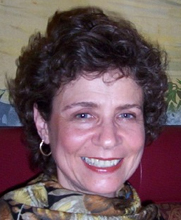Dear Mary,
I used to read your column in the Baltimore Fifty-Plus magazine and found your advice and suggestions to be most practical. I have a friend in need of a support group, as she is a caregiver for her mother. She is an only child and has had a very sad relationship with her mother who has told her throughout her whole life that she hates her. The mother is in reasonably good health and sound mind but is threatening her daughter with lawsuits even though she is living under her roof. The woman has nowhere to go and her daughter gives her all the freedom in the world. My friend is 65, divorced, and has the house. She takes her mother shopping and to any appointments as well as to church. My friend seems unable to find the right support group to cope with this difficult situation. Can you offer any suggestions? As her friend I would like to get her to the proper group because my listening isn’t doing the trick.Thank you for your help in this matter.
Your friend’s mother sounds like she’s been a handful for a long time and may have a psychiatric disorder that requires intervention. Trying to change a long-standing adversarial relationship is difficult but learning how to manage it is more realistic.
Most support groups for adult children are geared toward dealing with dementia issues or alcohol abuse in a parent. I’m not aware of any specifically that deal with just difficult parents. If readers out there know of any I’d love to hear from you.
My suggestion is that your friend find a counselor specializing in family issues. She needs guidance to learn how to “detach” from the situation while still providing her mother with the necessary care. She may also benefit from reading two good books: the first by Grace Lebow and Barbara Kane called Coping with Your Difficult Older Parent, the second by Melody Beattie called Codependent No More. Both are insightful and contain wonderful information for changing old habits. She may also do well by consulting with an elder-law attorney about her rights and those of her mother.
Good luck.
Dear Mary,
I enjoyed reading the article on communication that you wrote for the January edition of The Ribbon (www.TheRibbon.com). So many people think those with Alzheimer’s disease can no longer communicate nor have feelings. We don’t know what they can hear and understand, especially when they have hearing problems, too, and often can’t form words. Communication to them becomes touch, a kind voice, and a loving atmosphere. We learn so much about human nature, communication, and the needs of those with impairment if we’re patient.
To help others to understand (for their loved one’s sake and for their own sanity) I share my experiences with my Mom and aunt through speaking and writing. Out of this grew my book, “When We Become the Parent to Our Parents”.
Thanks for sharing; Mary Emma Allen, Author/Illustrator/Speaker
Dear Ms. Allen,
Thank you for taking the time to comment on the article. Yes, people with dementia are able to communicate until the end as long as the lines of communication are kept open. And emotions are still present in dementia impaired persons but they aren’t expressed or recognized like they once were. Although physical touch may seem like the only form of communication they understand, talking, smiling, and eye contact are also important and strongly encouraged.
I want everyone to be aware of a new website just launched by the National Council on the Aging (NCOA) called BenefitsCheckUpRx. This is a free confidential site that helps older adults (55 and older) identify eligibility for more than 240 prescription medication programs available from both the public and private sectors. It can be accessed by logging onto: http://www.BenefitsCheckUp.org.
God Bless.

